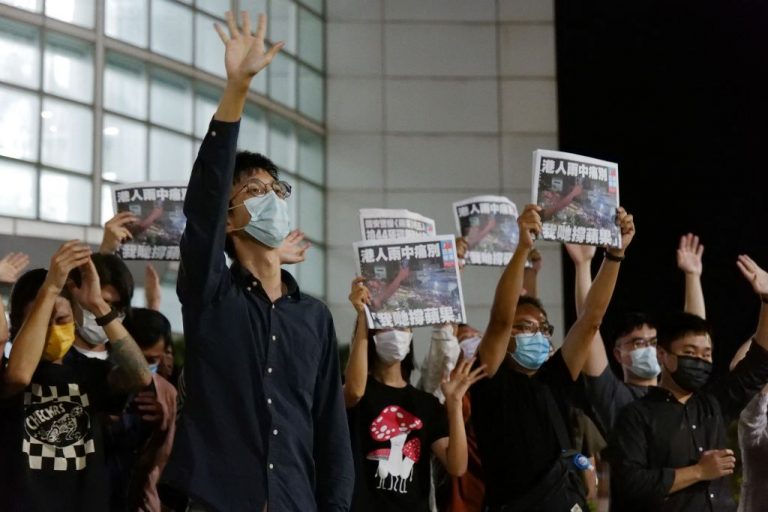An annual report on press freedoms across the globe published by Reporters Without Borders (RSF) indicates that Hong Kong, once a bastion for free press, has plummeted in the rankings. The dismal performance is being attributed to the Chinese government’s implementation of the National Security Law (NSL), which was enacted in June 2020 and has been wielded to prosecute and jail journalists.
According to the 2022 report, Hong Kong now ranks 148th out of 180 countries measured placing Hong Kong between the Philippines and Turkey. A higher score indicates less press freedoms. In 2021 Hong Kong ranked 80th meaning Hong Kong has plunged in the rankings considerably in one year.
“It is the biggest downfall of the year, but it is fully deserved due to the consistent attacks on freedom of the press and the slow disappearance of the rule of law in Hong Kong,” Cedric Alviani, head of RSF’s Taiwan-based East Asia bureau, told AFP.
The People’s Republic of China ranked 175th and North Korea ranked the lowest at 180.
Due to the NSL, “In 2021, two major independent news outlets, Apple Daily and Stand News, were forcefully shut down while numerous smaller-scale media outlets ceased operations, citing legal risks,” the report reads.
Success
You are now signed up for our newsletter
Success
Check your email to complete sign up
“The Hong Kong government takes orders directly from Beijing and openly supports its attempts to impose censorship and spread propaganda,” asserts the authors of the report.
The organization cites public broadcaster Radio Television Hong Kong (RTHK), that was previously renowned for its fearless investigations, but has subsequently been placed under a pro-government management which does not hesitate to censor the programs it disapproves of.
READ MORE:
- Chinese State-linked Newspaper Brands Hong Kong Journalist Association as ‘Anti-China,’ Calls for Its Disbandment
- Hong Kong Charges Pro-Democracy Leaders With ‘Illegal Assembly’
- Apple Daily Raided by Hong Kong Police; Several Arrested Under ‘National Security Law’
According to the report, despite Hong Kong’s Basic Law enshrining “freedom of speech, of the press and of publication” the NSL serves as a pretext to silence independent voices in the name of the fight against “terrorism”, “secession”, “subversion”, and “collusion with foreign forces”.
Due to its ambiguous phrasing, the NSL appears to apply to any journalist covering Hong Kong, regardless of their location, meaning journalists writing from a different country could be held accountable under the NSL.
Most large-scale media outlets in China are state-owned and parrot pro-Beijing talking points.
Hong Kong was once a safe place for journalists to operate until 2014, when journalists who covered the Umbrella Movement were targeted by the police and pro-Beijing factions.
“During the 2019 protests, hundreds of journalists were victims of police violence and were also detained and indicted. A new wave of arrests started in 2021, when a dozen journalists were detained for national security crimes,” the report reads.














